Embedded Criticism: Inside Toronto Fringe with the New Young Reviewers, Part One
In the essays below, returning members from last year’s New Young Reviewers cohort Micah Chu, Riley Kelk, and Sayak Sneddon-Ghosal experiment with embedded theatre criticism. Unlike conventional criticism, which has traditionally been framed as a “distanced” and “objective” practice, embedded criticism offers reviewers an insider view of a production, as they embed in the rehearsal process of a show as well as review it.
This program is led by Signy Lynch and Stephanie Fung and is generously supported by the Jon Kaplan Legacy Fund.
Enjoy While Fresh: The Musical Humour of A PERFECT BOWL OF PHO
By Micah Chu
A Perfect Bowl of Pho is a heartfelt story, told in a series of musical sketches. Paraphrasing from director Steven Hao and music director Kevin Vuong, it explores the complexity of Asian identity, under the guise of good Asian, particularly Vietnamese, cuisine. After witnessing the journey and destination, I would love to see the phở show flourish in the hands of a professional theatre.
When a piece is written and performed around personal stories and cultures, it’s important for the cast and crew to connect with the art and experiences. This is even more true for the, aptly nicknamed, phở show. The writer, Nam Nguyen, played here by Chris Vergara, is a pivotal character; he travels through the musical, telling the story of its conception. This self-insertion creates an interesting new demonstration of personal identity.
However, this is more than a personal piece for Nguyen: it’s become an important show on a community-level. As Vuong said when I interviewed him, “so many of us come from diasporic communities in and around Toronto, we see ourselves reflecting so much more often in the piece of art we are re-creating — more so than any other show I’ve ever worked on.”
Having been created and re-created since the debut as a UofT Drama Festival production in 2017, the continually-evolving creative team takes risks and explores their creativity in an unusual manner. Stage manager Annasofie Jakobsen’s characterization of the show as “silly soup songs” paints the picture of a traditional musical. However, the current iteration of A Perfect Bowl of Pho is performed in a form akin to sketch comedy. There are short bits and segments that are presented without seamless transitions or explicit continuity.
This atypical structure of storytelling doesn’t easily lend itself to overarching plots or character development. However, it allows the creatives to add unique voices and broaden their perspectives. Moving in a bold and intimate direction, characters occasionally break the fourth wall, interacting with the audience and the concept of life outside the characters’ own. Through this, the show addresses feedback on previous versions which had been critiques for a lack of clear meaning (beyond being funny).
In a form of meta-reflection, the show ponders whether it needs to have a point or profound message. However, this is done in a cyclical and satirical way, pulling the audience around the show’s theme and never reaching a resolution; this choice eventually detracts from the more entertaining aspects, and leaves the show feeling somewhat unfinished.
But don’t let this stop you from enjoying the silly soup songs. If you’re looking for a fun time and great laughs, A Perfect Bowl of Pho delivers every time. From the witty writing to the refined delivery by the cast (Chris Vergara, Randy Chang, Mya Wong, Kryslyne-Mai Ancheta, Honey Pham, Victoria Yip, Donny Phan, Joshua Kilimnik, Izzy Bergman), this show brings distinct humour to nuanced topics. Despite being a comedy about food, the show broaches serious cultural discussions; bringing songs about generational gaps within immigrant families, appropriation and commodification, Vietnam’s colonial past, and the hardships of the Vietnam War. The balance between drama and comedy shows finesse and care from the whole team.
It’s said that food brings everyone together, and I found myself agreeing as I watched a rehearsal of A Perfect Bowl of Pho. It was two weeks before the opening night and there was a palpable air of camaraderie.
Director Steven Hao said it best: “what’s great about working with a cast of mostly Asian creatives is that when you share stories or personal anecdotes, you will get a very gratifying and collective ‘mmm’ from the room, there’s a certain unspoken acknowledgement and respect that is shared.”
The care and love is plain to see throughout. When the rehearsal ended, I was pulled along like a member, encouraged to share my thoughts and answer one question: if I were a board game, which one would I be? The answers vary greatly, but displeased exclamations (“Nooo, I was going to say that!”) showed that many gravitated towards similar games. In fact, I had to rethink my choice twice (Bananagrams and War, for anyone wondering).
My time spent in rehearsal was short, but maybe I was spoiled, as my favorite scene of the show was unfortunately removed. However, this was likely for the best as the show went over time on its opening night, even when missing a scene. It’s an ambitious show for the Fringe, pushing the limits of runtime and team size.
This wasn’t the end of their technical turmoils on opening night, as microphones cut out and lyrics were muffled by masks. An unfortunate wave of the dreaded virus hit a mere week before opening night, leading to an unavoidable lack of preparation. The team had to run a technical rehearsal hours before the performance and substituted a performer with Hao himself. In the end, the show must go on, and this dedication is the heart of theatre.
Just as the frantic and messy slurping of delicious noodles can startle a laugh out of anyone, be prepared for the unexpected moments of joy and comedy wrapped around a delicate story of identity. A Perfect Bowl of Pho is a compilation of stories within one story, a telling of many different times and perspectives with two uniting identities, Vietnamese experiences and food, and well worth the ticket price!

Lou Campbell’s PRUDE: A Hilarious and Vulnerable Journey from Toxic Conformity to Self-Affirmation
By Sayak Sneddon-Ghosal
“I think there is a lot of shame surrounding sex. People elevate it onto a pedestal where it is treated as this AMAZING thing that should only be whispered about, judged, giggled at, but never just treated as what it is—just another activity that humans engage in,” explains Lou Campbell, improv artist and creator of the high-octane one-person show PRUDE, currently playing at the Toronto Fringe.
“It’s not anything to be ashamed of, but it’s also not better than anything else. The point of PRUDE is to take sex off this pedestal,” says Campbell, a white, trans non-binary graysexual.
If you don’t entirely understand all of those labels, don’t worry. PRUDE doesn’t delve into them. Instead, its focus is on what lies beneath, as the magnetic, limber and uninhibited Campbell performs a wildly comic and deeply vulnerable journey from toxic conformity to self-affirmation.
PRUDE is an immersive audience experience which begins with “Last Friday Night (T.G.I.F.)” by Katy Perry and other uptempo bangers blaring through the speakers as you make your way up the steep stairs and into Tarragon Theatre’s Solo Room. The head-bobbing songs, compact room, tight seating, and close proximity of the stage create the feeling that you’re at a club: not just an observer of PRUDE, but also part of a communal experience.
Following a land acknowledgement and specific call to action, as well as a content and production warning, The King of the Party — sheathed in a full-body, salmon-coloured spandex suit with a matching cape, crown, and shoes — explodes onto the stage. The King — equal parts swagger, gesture, and pronouncement — is on a mission to teach us how to be party people, and launches into that mission with cartoonish, crude, and hilarious gusto.
Campbell gives their all in unifying this part drag-show, part stand-up comedy set, part TED Talk gone wrong. They make use of every moment on stage, gliding through these various facets — and emotions — with ease. One moment, Campbell is doing standup as the King of the Party. The next: they’re lip-synching and dancing across the stage and out into the audience. In another moment, they’re embodying cringeworthy personas and experiences from high school and university days. Campbell never falters and modulates smoothly between roles with high levels of energy and intention.
Of course, it’s clear from the start that things are not quite right with the King of the Party. They have too much energy. Impossible, over-the-top intensity. So many zigs and sudden zags in their monologue that – even while you laugh (and you will!), you’re on alert, waiting for the moment where the King will crack to reveal what’s hidden beneath that mercurial identity. What they’re overcompensating for.
The show’s ultra-simple set — just a mic, chair, water bottle and box of props — can anchor this bigger, immersive club-like experience, because in Campbell’s words, “when you pull from mediums that have a clear staging format to reference, it makes things fun and easier because you have a starting point. Standup is “always a mic, sometimes a stool, and some water. Then the person just chats away.” With drag, “there is a lot of audience interaction and dancing.” And the motivational speaker style uses “a lot of loud music, sound effects and . . . ‘pump up’ techniques to get the audience amped.” Campbell “loved blending all of these styles to get to the heart of the comedy of the piece, and get across what [they] wanted to say.”
Campbell’s performance is mesmerizing: they are able to fill this simple set by careening throughout the space and switching mediums fluidly and continuously because in their words, “it’s simply how my mind works” and “that’s naturally where my performance practice goes.” In fact, the process of creating the show rebuffs traditional labels as much as the show’s genre and the show’s star. Campbell “never really ‘decided’ to blend these mediums,” they said. This show was “just what came out.” And they didn’t “storyboard or anything like that,” because they “don’t write things that follow a traditional narrative structure.” Rather, they’re “amped up, typing away for hours.” And “whatever comes out,” they “just go with (or throw away).”
This beautiful chaos is evident not just in the structure of PRUDE, but in the diverse talents Campbell puts on display to service that structure: the succession of personas and perspectives they adopt, the lip-synching, emceeing, and the dancing, which runs the gamut from drug-fuelled dance party to tap (yup!), and (brace yourself) Sim dancing.
That organic process and fearless resistance to convention were evident in the rehearsal I observed over Zoom with Campbell and the show’s director Stevey Hunter. The two blocked scenes with what Campbell termed extensive “trial and error [and] cut and paste.” I saw fluid and continuous experimentation, where they opted to feel out different options experientially, rather than try to hit some specific, pre-planned sense of how the show should look.
The result is a multidisciplinary work that evades labels and is more than the sum of its parts. Prior to observing the rehearsal, I read the show’s script. And I won’t lie: I just couldn’t compute it. The show is crude and vulgar. It focuses on sex and substance abuse. Yet it’s playful — even whimsical. Its stream-of-consciousness mix of mediums and tonalities was confusing for me. I couldn’t understand how these disparate elements on the page would work together in the space. And even after the rehearsal — chill and go-with-the-flow as it was — I still couldn’t put together PRUDE. I feared it would be fragmented, disjointed, and incoherent.
And yet when I saw it live . . . it wasn’t any of those things.
It was bust-a-gut funny, impossibly lively and raw.
It was honest, dramatic and fast-paced.
And vulnerable. Vulnerable to the point of being unsettling . . . yet ultimately affirming.
PRUDE is a bespoke mirror that uses comedy to show us how much weight our society places on sex and sexuality. Now, it bears repeating to prospective audience members that, in the way it does this, the show is not subtle. It makes full use of its 18A rating, and this is no accident: Campbell “wanted [PRUDE] to be so in your face that it became comical, because for so long I was pushing myself SO hard to perform sexuality the way I thought I was supposed to, the way I thought would make me the most fun and interesting person in the room.” They “wanted this intensity and effort to come across in the performance.”
It does — in spades.
And when the cracks appear in the King of the Party’s facade, that mirror trains itself on how confusing — and isolating — these sexual norms can be for asexual people . . . or for anyone, really. Ultimately, “labels are just words that we use to be better understood and to communicate our truths” says Campbell.
“But in a perfect world, ace (a person on the spectrum of asexuality) and allo (allosexual: a person who experiences sexual attraction to others) wouldn’t need to exist because people would just know everyone is different and has differing desire levels.”
Campbell recognizes the utility of such labels, but the intent of the King of the Party’s journey of self-revelation is to help all of us rise above our labels.
“I want this show to push people to question compulsory sexuality, which is the idea that everyone is a sexual person or that sexual attraction is the norm in human interaction,” says Campbell.
Campbell hopes that the piece will “celebrate and uplift anyone who has felt similarly trapped the way I have, and . . . give insight to those who may not experience or relate, but would certainly benefit from challenging their own assumptions about other people.”
PRUDE — the process, the production, the play and the performer — all defy easy definition. The show’s chameleon-like succession of styles, personas and moods could have collapsed into incoherence. But thanks to its organic creative process and Campbell’s unflagging performance, it not only never feels forced . . . it uplifts.
And unconventional success like this is important to Campbell, who believes that “[a]s theatre emerges into the world where COVID exists but things also continue on around it … multidisciplinary work, and things that push beyond what our common expectations of theatre are, are going to become very important.”
PRUDE is a bona fide one-of-a-kind experience.
And a very important one, too.

Embedding within YES, VENUS I AM
By Riley Kelk
YES, VENUS, I AM (presented by Dirty Rotten Clowns in association with Toronto Fringe) is a campy, queer, anticapitalist romp through gender and workplace safety violations alike.
We follow Venus (Lila Bata-Walsh), the new diversity hire at a factory, where she works with The Chorus of Men (Maxen Jack-Monroe, Philip Sawaia, Sayntana Perera) under The Manager (Gabrielle Anna Houle), who is up for a promotion after the untimely death of Manfred McMann. Can Venus make her workplace more bearable (at least enough so that she doesn’t need to sniff industrial-strength glue to get through her shift), get revenge on her terrible boss, AND discover her true self?
But when Working Lass (also Jack-Monroe) invites Venus to a pub night for their workplace union, it unlocks all the possibilities inside.
One of the reasons I wanted to review this show is because it is a trans story told by trans people. Playwright and director meatball was able to capture both a nuanced and fun trans story.
“I really wanted to spew out queer anger in a messy act of self-liberation,” said meatball in an interview.
It was important to them that trans characters had space to be messy and angry and imperfect, just like their cis counterparts. Like Venus says, “Why can’t we just roll on up there with a guillotine?”
We also get to see the process of gender exploration, epiphany, and euphoria in real time on stage. Venus’ transition to Mercury is integral to the story, but not because the story is solely about their transition. Mercury is the logical evolution of Venus, and this transition empowers him to take matters into his own hands.
Dirty Rotten Clowns theatre company is based in Montreal, but I was fortunate enough to be able to watch some of their rehearsals over Zoom. Rehearsals took place in meatball’s dining room. The decision to host auditions and rehearsals in their home was intentional, fueled by a desire to create a space of trust and respect. Besides offering the creative space, the cast was also welcome to the amenities of the space, including a home-cooked meal by meatball. This kind of care is lovely to see in a rehearsal environment, and it translated into the dynamic of the cast. Watching them work through blocking, it was easy to see the respect and friendship proliferating within the team. What I observed was a collaborative and detailed process as they honed the performance.
The Chorus of Men is a good example of this collaborative process. Their collective performance in the show was funny and energetic. They were great at staying in sync even if one of them faltered.
The cast is made up of entirely non-cis queer people, which also contributed to the rehearsal’s environment of safety and trust. “Working with an all-queer cast was heavenly. I felt so seen and heard. I felt very safe. I didn’t have to explain myself,” said meatball. As a trans theatre artist who has been in both queer and non-queer arts spaces, I can relate to this sentiment. Artistic spaces like the one meatball created are very important in the theatre industry, and I hope to see more people take that ethos of care into their work.
It’s somewhat fitting that a show about the constraints of capitalism is itself constrained by capitalism. meatball mentioned the time and monetary constraints of staging YES, VENUS, I AM, and the difficulties of securing funding without compromising their artistic vision — not to mention working multiple jobs while trying to devote time to this project. “There is a full length, full camp extravaganza of this show […] if any generous patron wants to slip us some cash!,” they said.
As the show exists in this Fringe Festival iteration, it is clear that some of these constraints work against it. Sometimes the messiness gets, well, messy. This show has a lot to say about masculinity, capitalism and queerness, and not enough time to say it. Working Lass initially confronts Mercury’s newfound lust for violence towards the end, but then immediately agrees with his plan. Throughout the play we see Venus getting high on glue, but the humourous portrayal never quite acknowledges the actual effects of substance use. From talking to meatball and reading what they’ve written about the show, I can tell they have really strong ideas about what they want to say, and I wish those ideas came through clearer in the show.
Overall, YES, VENUS, I AM is an enjoyable play taking big swings at big topics. I would love to see the even campier, more over-the-top, more absurd version of this show.
While it deals with some serious themes, this show is fun. It’s funny. It’s silly. It’s messy. It’s queer. What more could you want?


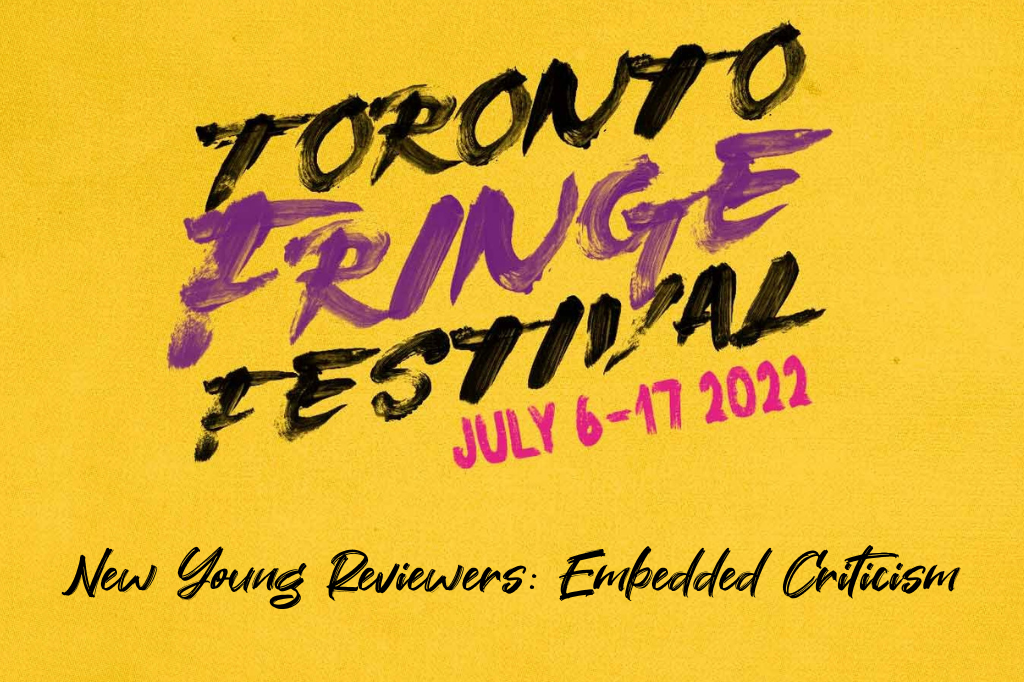

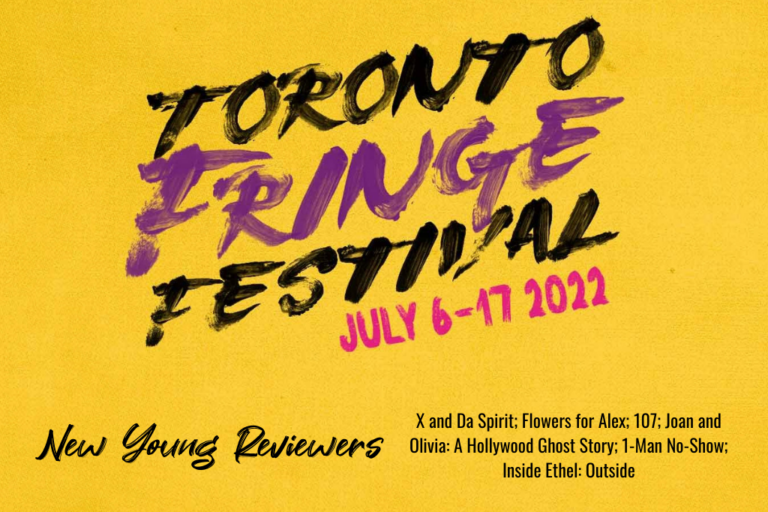
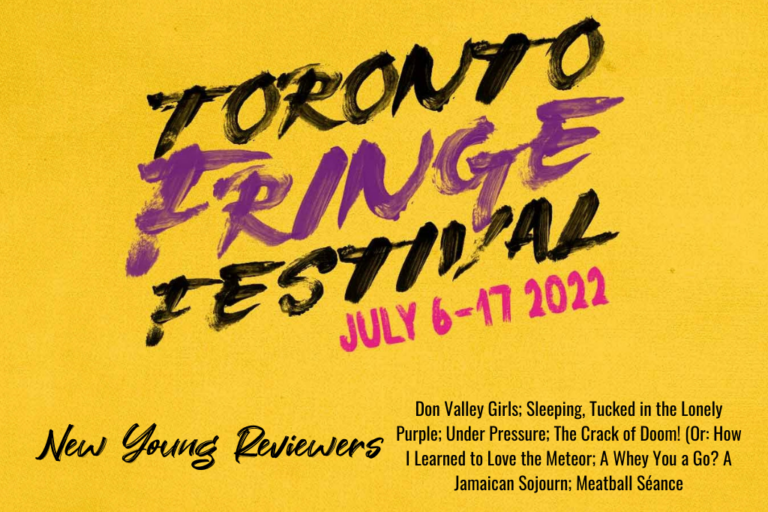



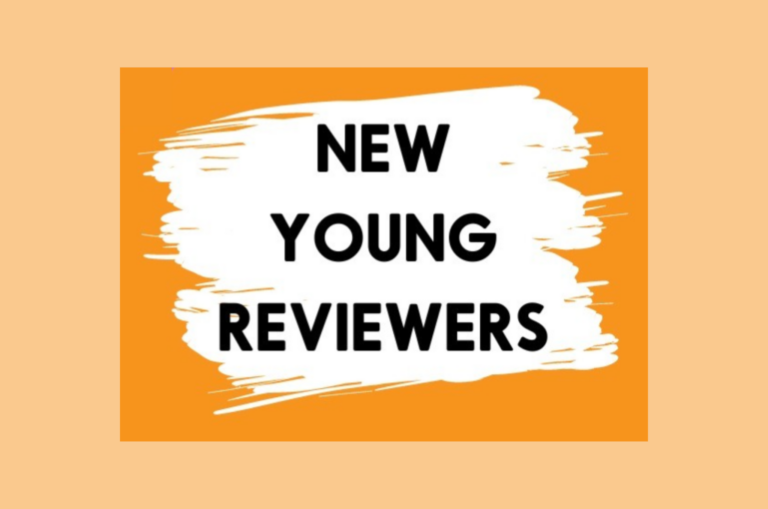
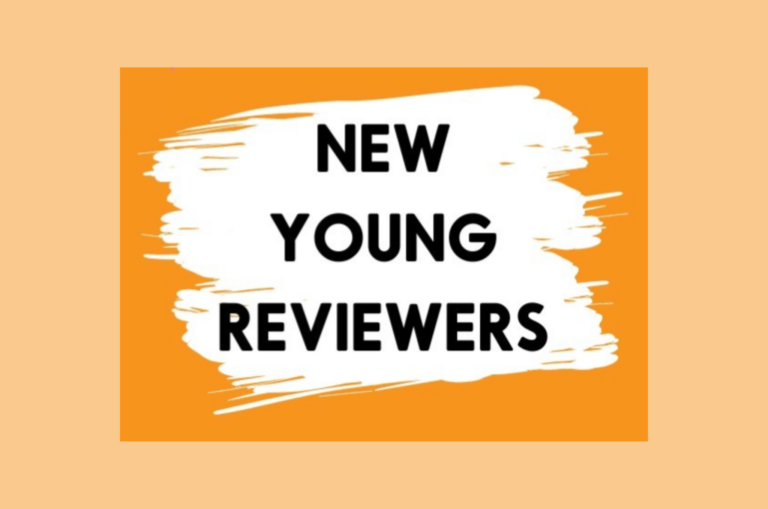
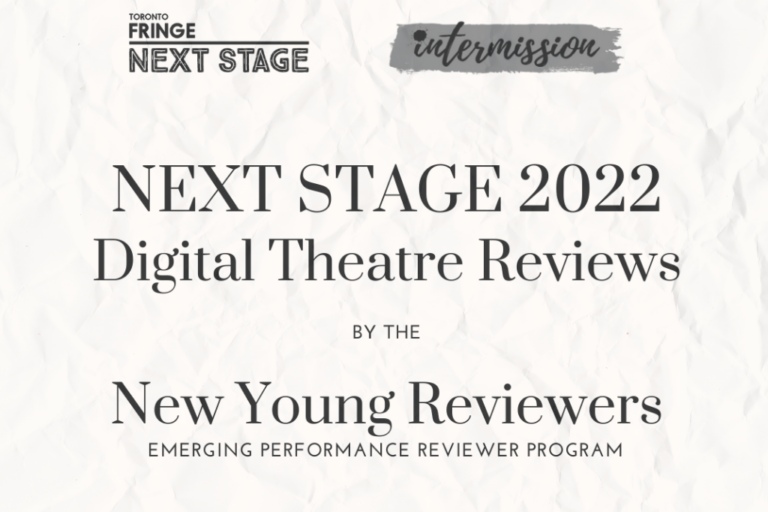
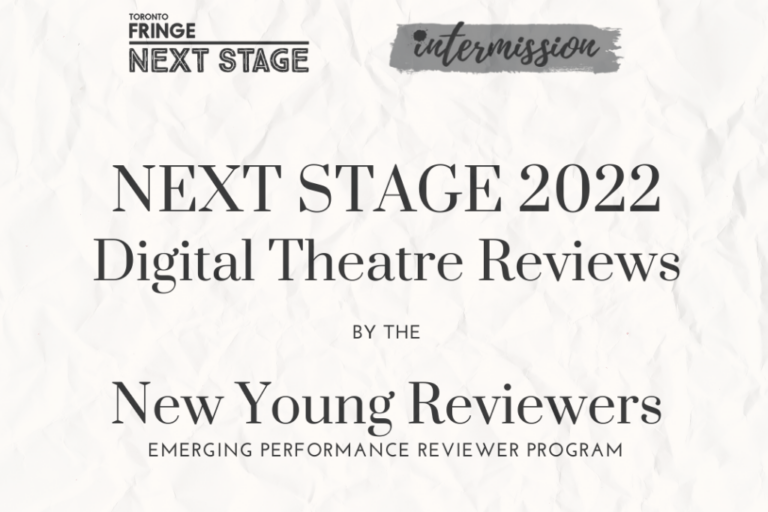
Comments